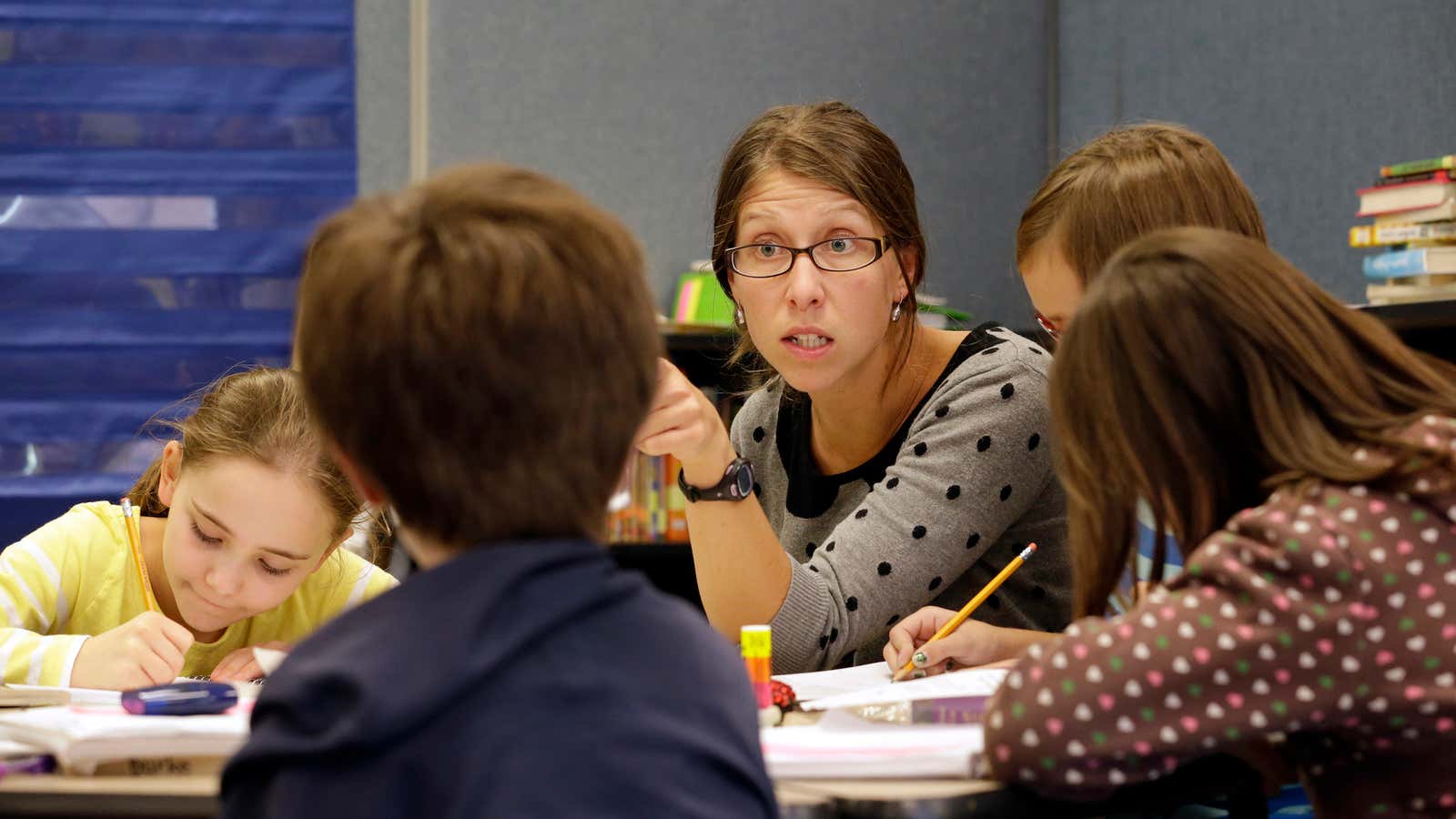It’s understandable that parents worry about their children’s math performance, even at a very young age, and that they try to help. But they may need to start thinking about how they help; according to a new study in Psychological Science, the more that anxious parents try to help their kids with math homework, the more harm they do.
“When parents have a poor relation with math and frequently help their children with their homework, their children learn less math,” write the researchers, led by Erin Maloney at the University of Chicago.
“Notably, even if parents are competent in the type of basic math that first- and second-grade children encounter, this does not preclude them from having feelings of anxiety when faced with their children’s math homework.”
The trend holds true even for parents that have been highly educated, with competent teachers, and at generally high-achieving schools.
To draw these conclusions, researchers tested more than 800 Illinois students at the beginning and end of their school year on their math skills and anxiety, and surveyed their parents on their own math anxiety, how often they helped their children, and their level of education.
Just having anxious parents isn’t enough, the study also shows. It takes the combination of “math anxiety” with attempted help. The effect of parental anxiety isn’t statistically significant when parents aren’t involved in the math homework.
There are a variety of possible reasons for this effect, the authors write. Parents with high math anxiety are likely to exhibit general negativity about the subject, which might demotivate children. They might translate their own high fear of failure into harsher criticism when their child struggles. And they may have developed inflexible ways of solving problems that clash with what’s being taught at school.
The problem seems specific to math—no similar effect was recorded when it came to reading, which were also assessed.
Common wisdom holds that the more involved a parent is in their child’s education, the better. To improve a child’s math performance, the authors argue, math averse parents shouldn’t stop helping their kids out, but rather be given more support and advice on how to do so effectively.
